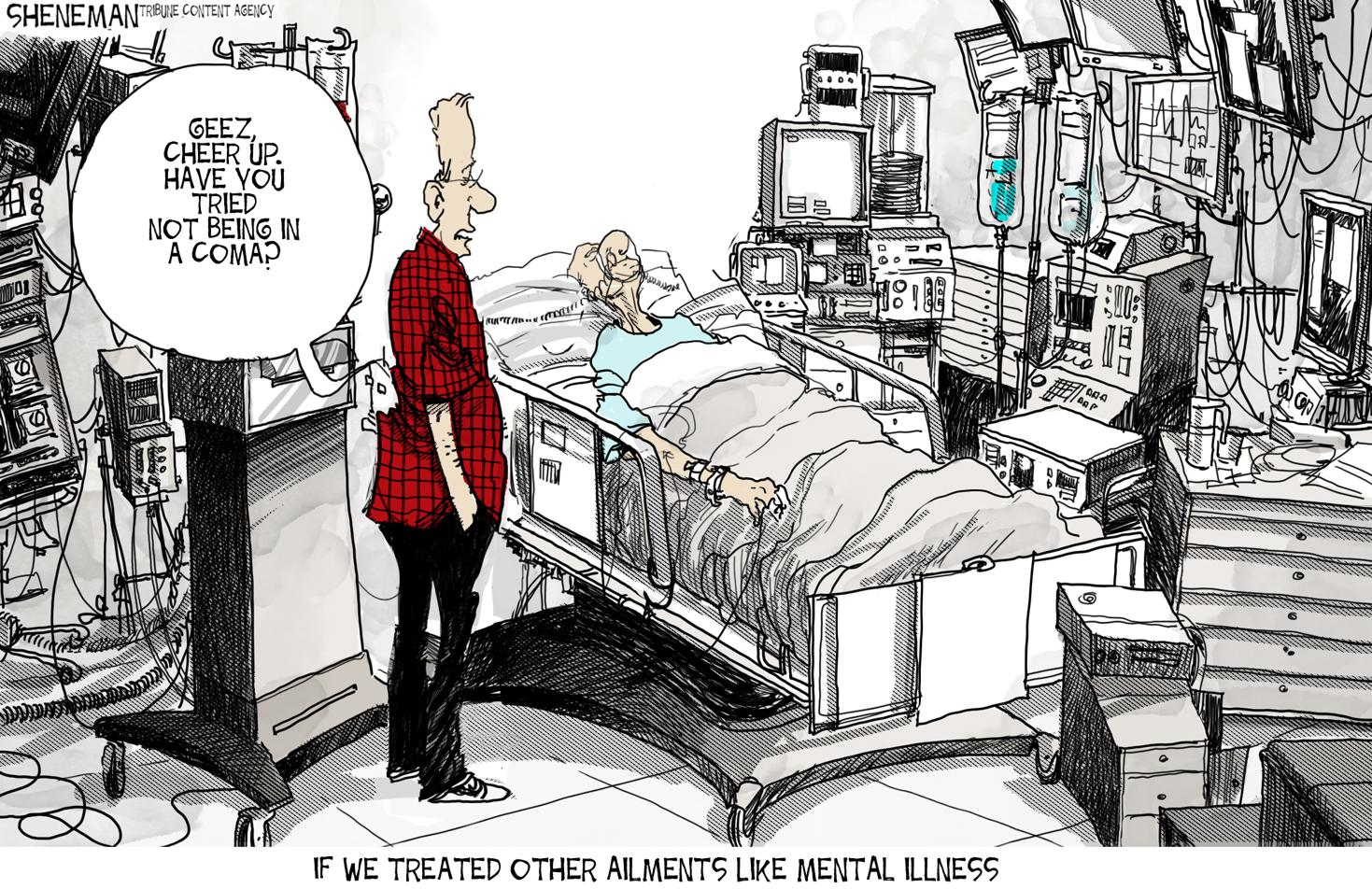Students suffering in silence:
I recently discovered that I check just about every box that indicates warning signs of depression — some of you are about to find out the same thing.
If you sleep too much or have trouble sleeping at all, or if it’s difficult concentrating on your schoolwork, or if you’ve lost your appetite or can’t seem to stop eating, and you think to yourself, “Well, yeah — that’s just college,” this should be a bit of a wake-up call.
“That’s just college” is an attitude that masks a whole host of underlying issues. Turns out most every college student can admit to feelings of emotional and mental exhaustion, at least to some degree. However, unlike physical maladies, barely any know if they need to get help or where to even find it.
That’s because seeking mental help makes you a crazy person —
At least, that’s the stigma. Telling someone you see a psychiatrist regularly isn’t generally thought of as a sound way of putting yourself together emotionally. Usually it’s reduced to a reason not to go on a second date.
Particularly for college-aged students, the sooner we can toss that “crazy person” stigma into oblivion, the better.
Everyone’s got something, be it a history of addiction, a budding eating disorder, unchecked anxiety or a past trauma.
Frankly, at such a crucial juncture of your life, not getting your shit together now could put you on a trajectory you’ll have a hard time changing further down the road.
Perhaps the reason mental health lacks the attention it deserves is there’s no conflict attracting people to the issue. There’s no opposition to it. It’s not like people are somehow against taking care of depression or anxiety, but in that complacency lies a dangerous problem.
There’s no popular movement behind reducing the stigma surrounding mental health, of seeing a psychiatrist, of expressing your feelings that you might have a problem — of seeking help. There’s no sexy hashtag that wannabe activists can plaster all over social media. There’s no rally. No spotlight. Nothing.
That needs to change. The connection between physical pain and seeing a doctor is seamless — there’s a roadmap for how to handle stomach issues or slicing your hand open. There’s a clear distinction between when an injury requires a skilled physician versus a bag of frozen vegetables slapped on it.
For whatever reason, when it comes to their mental well-being, a major disconnect keeps college students from seeking appropriate help, like they would with more tangible bumps and bruises.
Nobody questions a regular checkup at the dentist’s office or seeing the doctor when you feel as though something may be really wrong with you. You can even suggest it to someone without sounding like a total jerk. “You seem ill. Have you considered seeing a doctor?”
Well you know what? That same conversation can’t be had right now for those suffering from substance abuse, depression, paranoia, attachment issues or a basic longing for a greater understanding of who they are — the things your average school counselor can’t help you with.
How nice would it be if we all had a semester check-up to figure out what we’re doing in life? How often do we lose sight of why we’re even spending all this money on school? How many times a semester do you find yourself questioning your major, or your friends or your relationships?
We all need time to re-focus, and we all have issues to work through. If you don’t think you’ve got any, yours are probably going to be even more of a shock.
Taggart Student Center, Room 306 provides counseling and psychological services for everything from the depths of depression to deciding on a career. I’m not running a PR campaign for them, and they have no idea I’m even writing this extended opinion piece. But we have things in place here at USU to prevent the psychological wounds we all pick up from festering, and I’m sure they’d appreciate the opportunity to assist in the healing process.
I’m only passionate about a handful of things because, really, I think that’s all anyone has room for. This is one of them. Seeking help for issues you’re trying to tell yourself you don’t have does not mean you’re losing grip on reality. It means you’re being more honest with yourself than most people are willing to be.
But maybe I’m just crazy.
— Logan Jones is a junior majoring in journalism and communication. Feel free to send him feedback both polite and impolite at logantjones@aggiemail.usu.edu or tweet at him @Logantj.


So perfectly written Logan, you are talented.
This is excellent, especially the part about young adulthood being The Time to confront this issue.